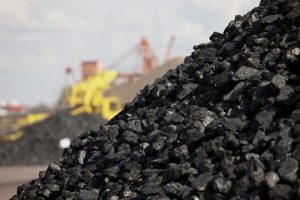 As the world’s top diplomats edged towards the Paris agreement to curb climate change in late 2015, Indonesia’s president Joko Widodo made his position clear. His remarks encapsulate the dilemma on energy policy faced by Indonesia, the world’s fifth largest emitter of greenhouse gases, and other fast-growing emerging economies. Indonesia, home to the fourth-largest population in the world, is keen to ensure affordable access to electricity to its 260m inhabitants dotted across some 17,000 islands. Coal remains the easiest — if not environmentally friendly — solution to satisfying the growing energy demand of the archipelago. It is cheap, easy to extract and transport, and Indonesia has a lot of it. More precisely, it hosts the tenth-largest coal reserve on the planet, according to the most recent BP Statistical Review of World Energy. Buoyed by strong exports to China and growing domestic demand, it is also the fifth-largest producer in the world, according to the
As the world’s top diplomats edged towards the Paris agreement to curb climate change in late 2015, Indonesia’s president Joko Widodo made his position clear. His remarks encapsulate the dilemma on energy policy faced by Indonesia, the world’s fifth largest emitter of greenhouse gases, and other fast-growing emerging economies. Indonesia, home to the fourth-largest population in the world, is keen to ensure affordable access to electricity to its 260m inhabitants dotted across some 17,000 islands. Coal remains the easiest — if not environmentally friendly — solution to satisfying the growing energy demand of the archipelago. It is cheap, easy to extract and transport, and Indonesia has a lot of it. More precisely, it hosts the tenth-largest coal reserve on the planet, according to the most recent BP Statistical Review of World Energy. Buoyed by strong exports to China and growing domestic demand, it is also the fifth-largest producer in the world, according to the
International Energy Agency. Indonesia’s coal production has jumped by almost 50 per cent since 2010, now accounting for more than half of the country’s overall electricity production of gigawatt hours. Geothermal and other renewable energy account for a meagre 5 per cent. Indonesia’s government is striving to develop renewables, says the ministry of energy and mineral resources. However, as a developing country its priority is to provide “affordable energy for our people”, it says that wind, solar or hydro power would not be able to meet high domestic demand. Indonesia has 27.2bn tonnes of recoverable coal reserves, which will last for another 60 years at current production rates, according to the says the ministry of energy and mineral resources. Financial Times
